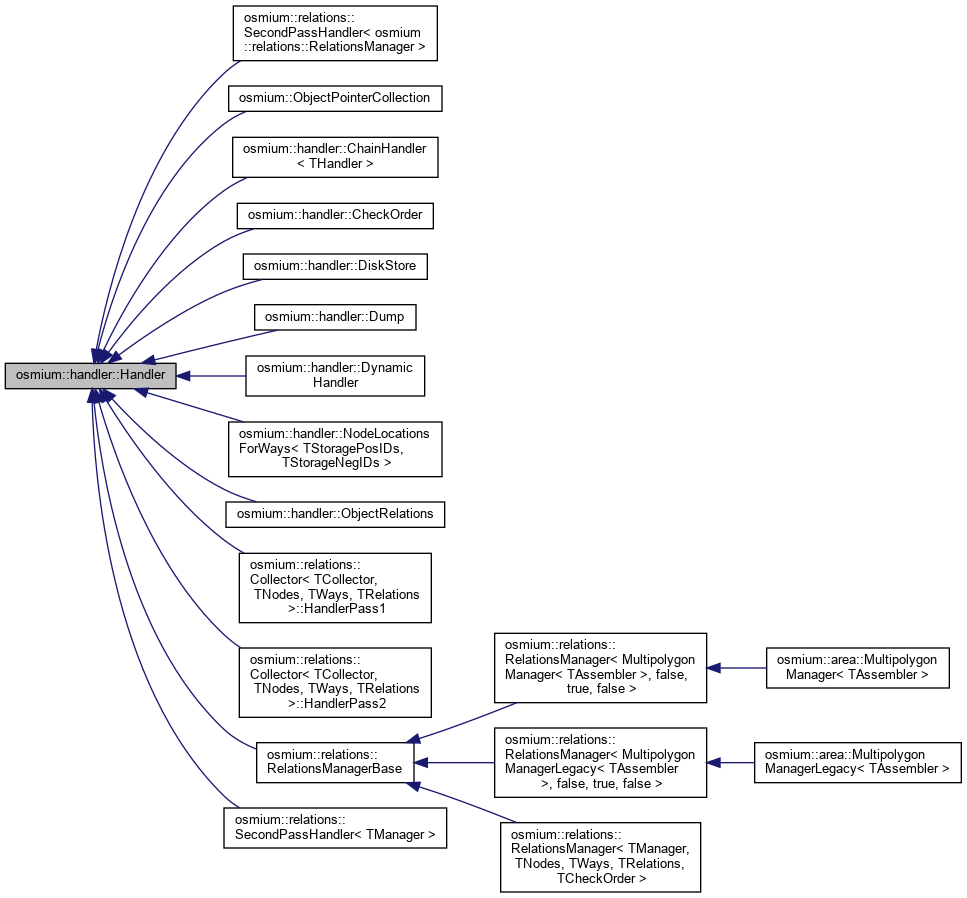#include <handler.hpp>
Inheritance diagram for osmium::handler::Handler:

Public Member Functions | |
| void | osm_object (const osmium::OSMObject &) const noexcept |
| void | node (const osmium::Node &) const noexcept |
| void | way (const osmium::Way &) const noexcept |
| void | relation (const osmium::Relation &) const noexcept |
| void | area (const osmium::Area &) const noexcept |
| void | changeset (const osmium::Changeset &) const noexcept |
| void | tag_list (const osmium::TagList &) const noexcept |
| void | way_node_list (const osmium::WayNodeList &) const noexcept |
| void | relation_member_list (const osmium::RelationMemberList &) const noexcept |
| void | outer_ring (const osmium::OuterRing &) const noexcept |
| void | inner_ring (const osmium::InnerRing &) const noexcept |
| void | changeset_discussion (const osmium::ChangesetDiscussion &) const noexcept |
| void | flush () const noexcept |
Detailed Description
Handler base class. Never used directly. Derive your own class from this class and "overwrite" the functions. Your functions must be named the same, but don't have to be const or noexcept or take their argument as const.
Usually you will overwrite the node(), way(), and relation() functions. If your program supports multipolygons, also the area() function. You can also use the osm_object() function which is called for all OSM objects (nodes, ways, relations, and areas) right before each of their specific callbacks is called.
If you are working with changesets, implement the changeset() function.
Member Function Documentation
◆ area()
|
inlinenoexcept |
◆ changeset()
|
inlinenoexcept |
◆ changeset_discussion()
|
inlinenoexcept |
◆ flush()
|
inlinenoexcept |
◆ inner_ring()
|
inlinenoexcept |
◆ node()
|
inlinenoexcept |
◆ osm_object()
|
inlinenoexcept |
◆ outer_ring()
|
inlinenoexcept |
◆ relation()
|
inlinenoexcept |
◆ relation_member_list()
|
inlinenoexcept |
◆ tag_list()
|
inlinenoexcept |
◆ way()
|
inlinenoexcept |
◆ way_node_list()
|
inlinenoexcept |
The documentation for this class was generated from the following file:
- include/osmium/handler.hpp